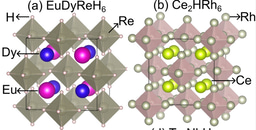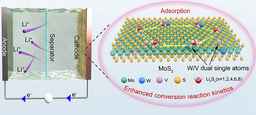Imagining a different online world
Published in Social Sciences

We never consume anything in a vacuum. All our decisions are influenced by context.
The marketing people on Madison Avenue have long understood this, and adverts in magazines, on TV, or on billboards have permeated life in free-market economies for decades. But it is still fairly easy to imagine TV without commercials (some public broadcasters), magazines without ads (many scientific journals), or a city without billboards (São Paulo being a case in point).
Enter advertising and customization online.
However, every time we use the internet or a social media platform, much of the environment itself is determined by designs and algorithms whose purpose is to grab and hold our attention – and to sell that capability to advertisers.
It is this goal of capturing human attention that has driven the growth of large parts of today’s online ecosystem. The original purposes of online platforms, such as communication or information search, have increasingly fallen by the wayside – to the detriment of objectives such as epistemic quality, individual autonomy and a productive democratic discourse.
How could these objectives be (re)introduced into the current online ecosystem without reinventing it from scratch? Our biggest challenge in writing our perspective on decision making in the online world was to imagine an online environment that looked radically different from the current one, designed not to influence and manipulate but to accurately inform, respectively discuss and protect autonomy. At the same time, we needed to ensure that our ideas were actionable within the status quo.
Our first idea was what some platforms already do—to use simple scores and labels as a guide to epistemic quality; in other words, to work with third-party fact checking. But we soon realized that if it is the environment that prevents people from making well informed decisions, then it is the environment that needs to be changed – simply outsourcing the fact-checking process is not enough of a solution. We aimed to empower internet users to make critical decisions for themselves. Therefore, we needed to come up with new and meaningful cues that users can easily incorporate and harness.
Wikipedia offered us some rare and helpful examples of design features – such as prominent references and clear flagging when references are missing – that promote epistemic quality, and that helped us to imagine the spectrum of possible cues available. Some of these cues have offline counterparts in journalism. But unlike traditional media, online media are not designed solely to be consumed; rather, they encourage active behaviours such as choice and interaction. We therefore needed to go beyond highlighting sources to provide adequate context for users’ decisions. This could mean, for example, showing the route by which a piece of information has reached a user – or who else has already interacted with the content and in what way.
Based on these and other cues to epistemic quality that platforms could easily provide, the behavioural sciences offer ways to integrate them into the environment or “choice architecture” – and thus improve decision making. In our article, we discuss how two evidence-based approaches, nudging and boosting, can shape online environments that help to inform and educate users. Nudges alter the environment to draw people’s attention to those cues – for instance, by putting a short delay on the share button when an article fails to cite external references. Boosts, in contrast, educate users, enabling them to search for cues on their own, and making them more resistant to false information and manipulation in any online context. For example, simple decision trees can guide people through a step-by-step process of checking a small number of relevant cues when reading web content – a process that in time becomes a habit.
We believe that the behavioural approach, based on the science of decision making, can go beyond third-party fact-checking to improve the informational and social potential of the internet. It can create an online ecosystem that enables people to make critical decisions themselves – even if this new online world is currently difficult to imagine.
Follow the Topic
-
Nature Human Behaviour

Drawing from a broad spectrum of social, biological, health, and physical science disciplines, this journal publishes research of outstanding significance into any aspect of individual or collective human behaviour.



Please sign in or register for FREE
If you are a registered user on Research Communities by Springer Nature, please sign in